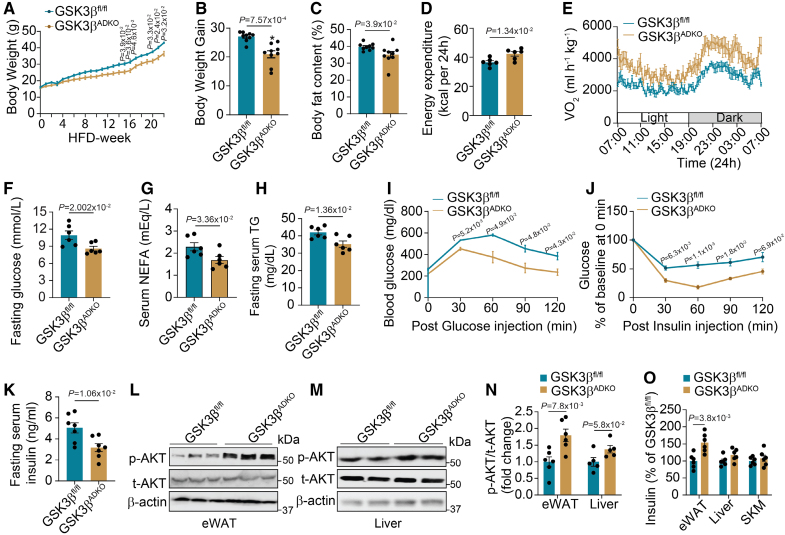Figure 2.
Adipocyte-specific GSK3β (glycogen synthase kinase-3 beta) deficiency alleviates obesity-associated metabolic complications and improves insulin signaling. Male GSK3βfl/fl and GSK3βADKO mice were fed a high-fat diet (HFD) to induce obesity and used for the experiments. A, Body weight of male GSK3βfl/fl and GSK3βADKO mice fed an HFD (n=9). B through H, Comparison of body weight gain (B; n=9), body fat content (C; n=9), energy expenditure (D; n=6), oxygen consumption (E; n=6), fasting serum glucose (F; n=6), nonesterified fatty acid (NEFA; G; n=6), and triglyceride (TG) levels (H; n=6). I and J, Glucose tolerance test (I) and insulin tolerance test (J) of the indicated obese mice (n=6). K, Fasting serum insulin level of indicated obese mice (n=7). L through N, Western blotting images of AKT/PKB (AKT serine-threonine kinase/protein kinase B) phosphorylation (L and M) and quantification using ImageJ software (N) in epididymal white adipose tissue (eWAT) and the liver (n=6 for L; n=5 for M). O, ELISA analysis of the insulin level in different tissues from indicated obese mice (n=6). A, I, and J, Repeated ANOVA and Bonferroni post hoc test; B through H, K, N (eWAT), and O, 2-tailed unpaired t test; N (liver), nonparametric test. SKM indicates skeletal muscle.

